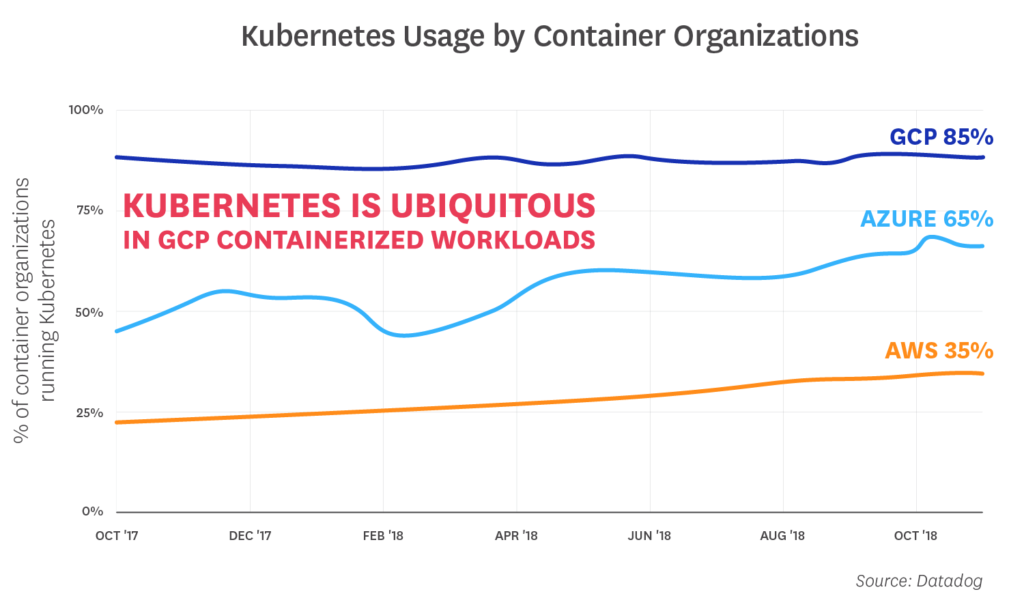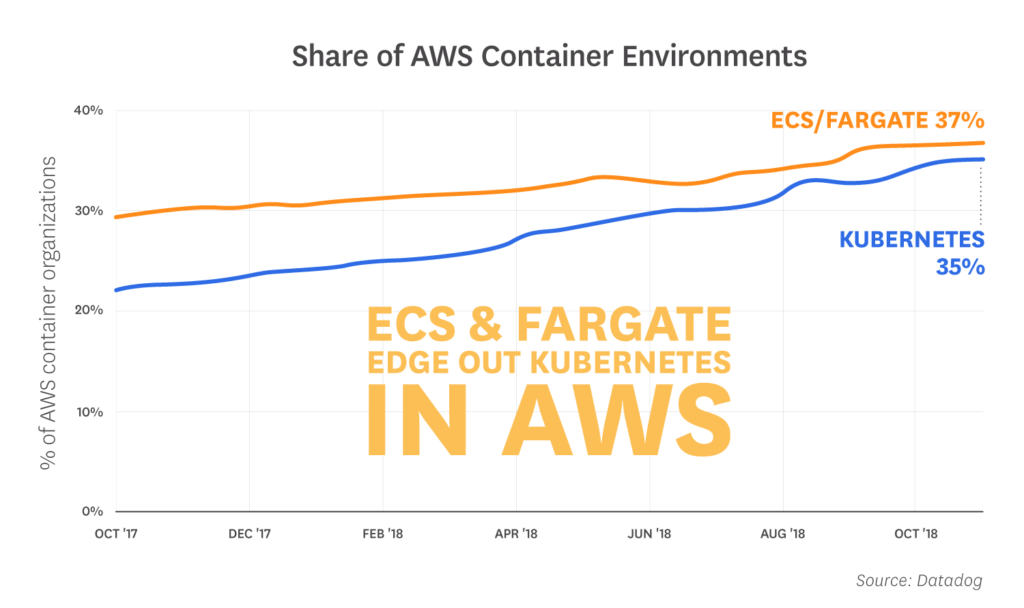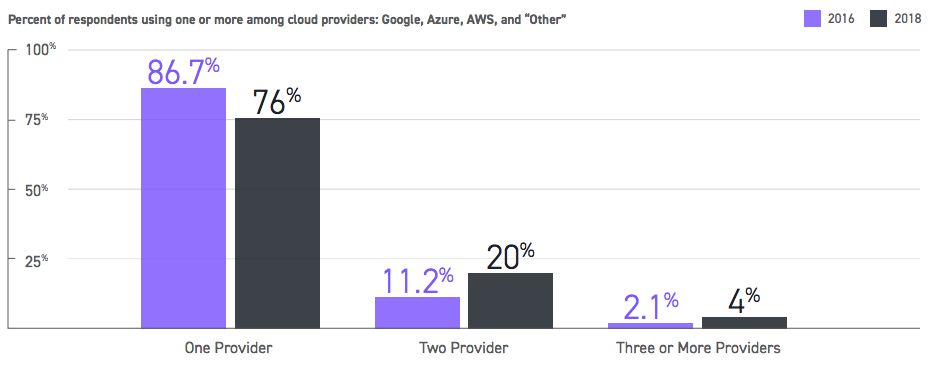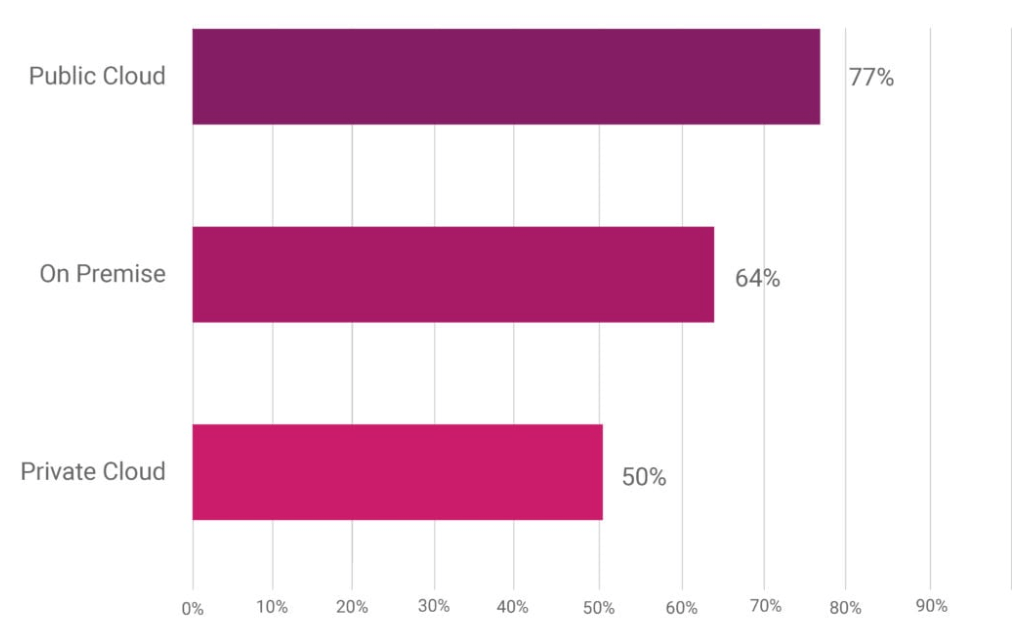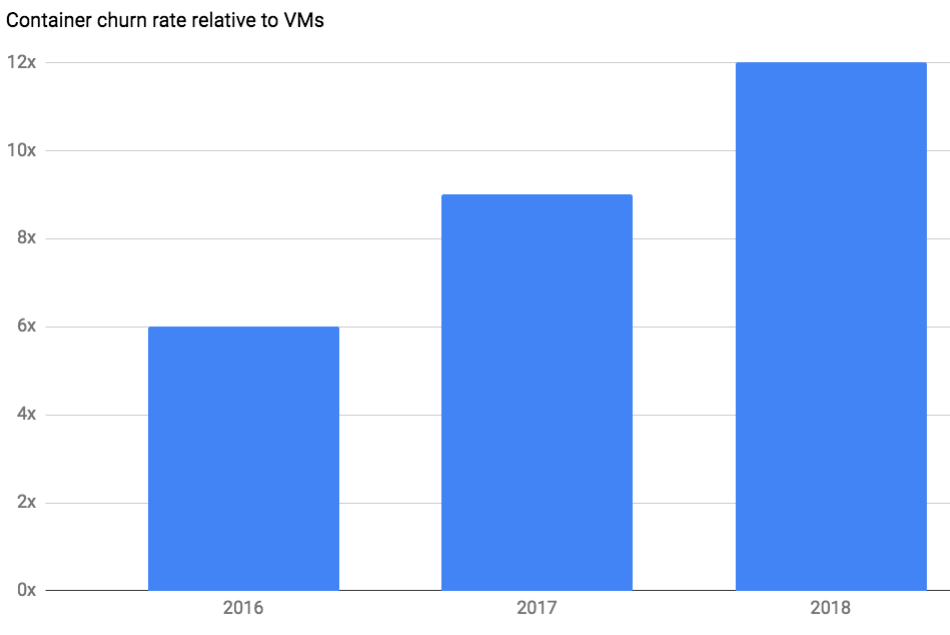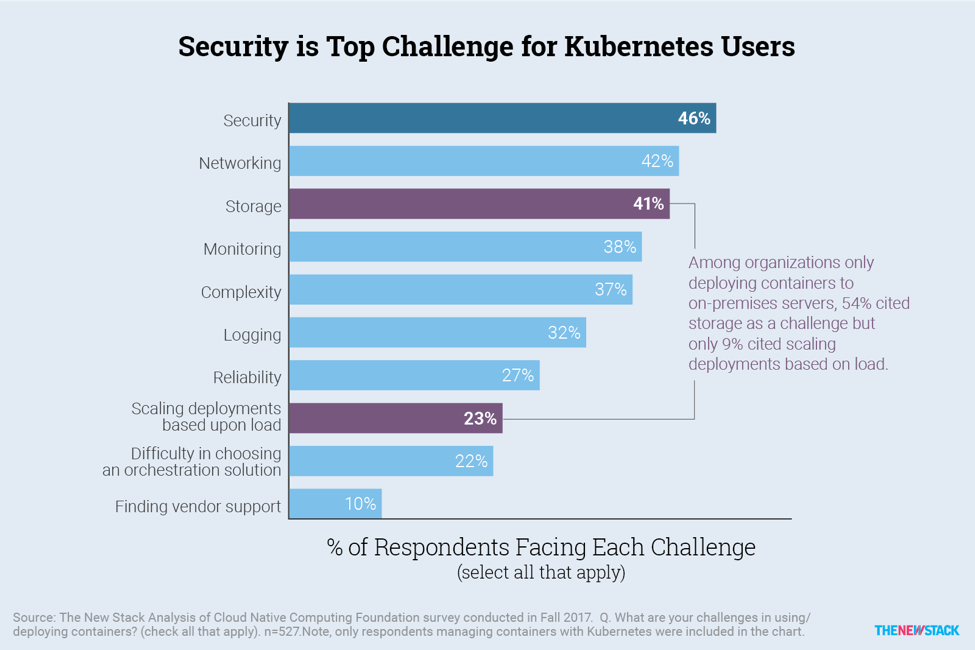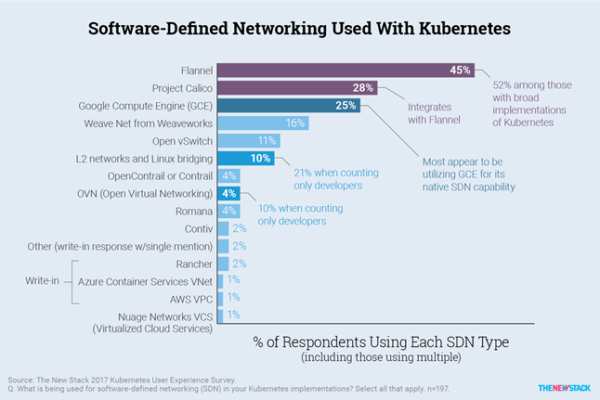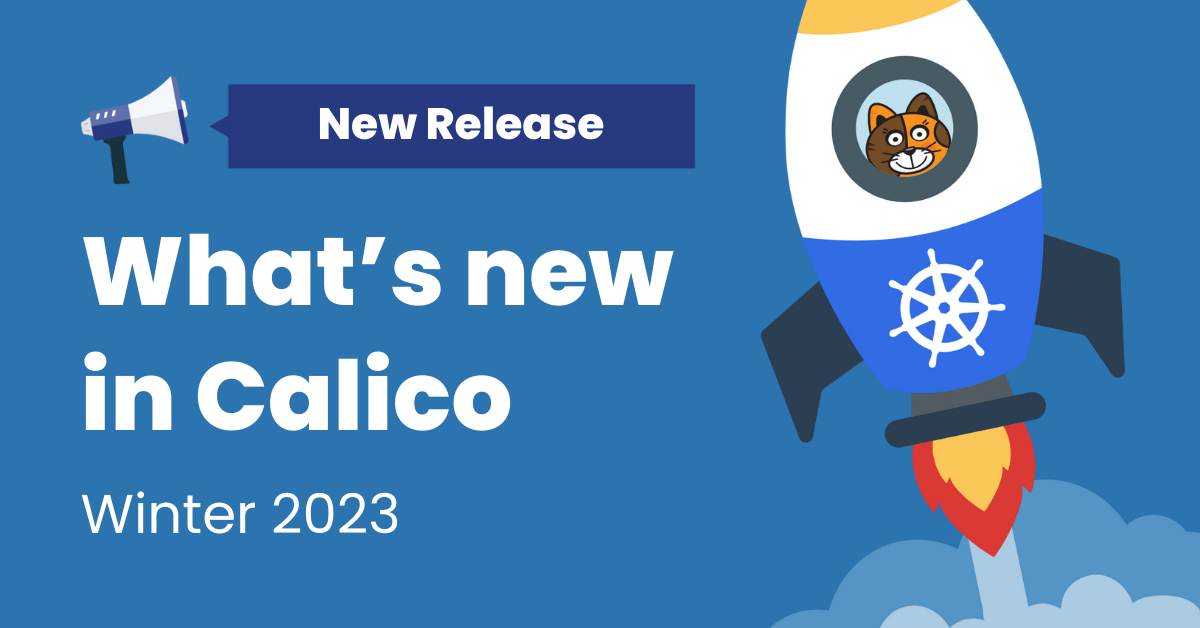With the start of the new year, it is a good time to look at what changes have happened in our industry over the last 12 months. With the help of a few recent industry surveys and some of our own perspective, I’d like to summarize some of the key trends that we are seeing.
#1: Public Cloud Container Adoption is Shifting to Kubernetes
According to Datadog’s December 2018 survey, most users of containers on Google (GCP) and Azure are using Kubernetes; that has been the case for some time in GCP, but Azure showed a dramatic increase in 2018, likely driven by the introduction of Azure Kubernetes Service (AKS).
Adoption of Kubernetes in AWS is lower, probably due to AWS’ early entry into the container market with ECS, but, even there, adoption is shifting from ECS to EKS, with the latter looking set to become the dominant service in 2019.
#2: Growth of Hybrid- and Multi-Cloud
In their recent report, Mesosphere noted a shift towards hybrid- and multi-cloud strategies, enabled by cloud native technologies such as containers and Kubernetes. The proportion of public cloud users adopting a multi-provider strategy went from just 13% in 2016 to 24% in 2018, while hybrid cloud usage went from 24% to 32% of all respondents over the same period. This is backed up by the latest CNCF survey which shows a clear mix of public cloud, on-premise servers, and private cloud.
Based on what we see with customers, we expect these trends to continue, with Kubernetes being the common platform for container deployment across heterogeneous cloud infrastructure environments. This is why we have designed our enterprise solution for multi-cluster and multi-cloud deployments, with federation of identity enabling consistent application of security policies in such environments.
Source: Mesosphere, September 2018
Source: Cloud Native Computing Foundation, August 2018
#3: Automation is Driving Faster Container Churn
In their most recent Datadog survey on container use, Datadog noted that containers are now churning 12 times faster than VMs, up from 9x just a year earlier, and 6x two years ago. As a result, the average lifetime of an orchestrated container is now just 12 hours.
This has massive implications for troubleshooting, security, and compliance, and is one of the main drivers for trend #4…
Source: Datadog, December 2018
#4: Security is the Top Challenge
According to The New Stack’s eBook, “The State of the Kubernetes Ecosystem”, Security is the number one challenge for users adopting Kubernetes, cited by 46% of users (which rises to 55% in larger enterprises).
This concern is also reflected in the recent Tripwire survey, which highlights that
- 94% of respondents acknowledged they are concerned about container security
- 75% of those with more than 100 containers in production have reported an incident
- 98% believe they need additional security capabilities
- 42% have either delayed or limited container adoption due to security concerns.
Security is clearly going to be one of the major topics for Kubernetes in 2019.
#5: Tigera Calico leads in Open Source Kubernetes Network Security
Kubernetes approach to network security is the Network Policy API. Tigera’s Calico doesn’t just implement network policy for its own container networking solution (used by 28% of users according to a New Stack survey), it is also the network policy plug-in that is used by flannel (45% of users), AWS-CNI (Amazon EKS – not included in this survey), and Google GCE (25% of users), among others.
Looking at the adoption of the various networking solutions for Kubernetes, that means that Calico represents the network policy solution for the vast majority of the Kubernetes ecosystem.
Tigera Secure Enterprise Edition builds on Tigera Calico to enable zero trust security and continuous compliance for Kubernetes platforms with enterprise controls, visualization and monitoring of application flows, and hybrid/multi-cloud support.
#6: Growing Interest in Windows
Kubernetes support for Windows was released as a beta feature with Kubernetes 1.9 at the start of 2018. Throughout 2018, we have been working with Microsoft and seen growing interest for Windows, and this is reflected by the recent kubeadm survey shows nearly one out of every six users are interested in a Windows version. Tigera is now making available Calico for Windows as part of its Tigera Essentials offering for Kubernetes users, and with Windows support for Kubernetes expected to become generally available in 2019, we expect to see significant interest in this platform for production.
Source: Kubeadm survey, Jan 2019
————————————————-
Free Online Training
Access Live and On-Demand Kubernetes Tutorials
Calico Enterprise – Free Trial
Solve Common Kubernetes Roadblocks and Advance Your Enterprise Adoption
Join our mailing list
Get updates on blog posts, workshops, certification programs, new releases, and more!
